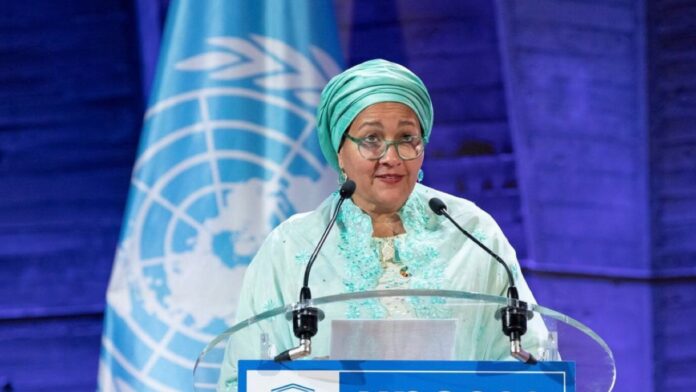UN Deputy Secretary-General, Amina Mohammed, arrived in Senegal on Tuesday, marking the first stop of her mission to review challenges in achieving the Sustainable Development Goals (SDGs) in West African countries.
Mohammed’s visit aims to assess the progress and obstacles in delivering the SDGs and collaborate with stakeholders to find ways to accelerate progress. This mission follows the SDG Summit held at the UN Headquarters in September 2023, which sought to expedite efforts towards meeting the 17 goals by the 2030 deadline.
In Dakar, Senegal, Mohammed met with President Bassirou Diomaye Faye, and the Ministers of Finance, the Economy, and Foreign Affairs.
“During those meetings, the Deputy Secretary-General reaffirmed our support to the Government toward key transitions to achieve the SDGs, including food systems transition, renewable energy, and the digital economy,” UN spokesperson Stéphane Dujarric told journalists in New York.
Mohammed is scheduled to meet with Prime Minister Ousmane Sonko on Wednesday, as well as the UN country team and civil society representatives, including women and youth groups.
After Senegal, Mohammed will travel to Conakry, Guinea, and then to Mali. She will conclude her regional tour by heading to Ethiopia to preside over the opening of the First Session of the Preparatory Committee for the Fourth International Conference on Financing for Development.
In a related development, Côte d’Ivoire has joined the UN Treaty to improve joint water management across borders, becoming the 53rd Party and the 10th African nation to sign the 1992 Convention on the Protection and Use of Transboundary Watercourses and International Lakes, according to the UN Economic Commission for Europe (UNECE).
“Côte d’Ivoire’s accession is a milestone for multilateralism and reaffirms the role of the UN Water Convention as a tool to support water cooperation for peace, sustainable development, and climate change adaptation across borders,” said Tatiana Molcean, the UNECE Executive Secretary.
Côte d’Ivoire, with a population of approximately 30 million, shares eight transboundary river basins with neighboring countries, including Ghana, Burkina Faso, Mali, Guinea, Liberia, and Sierra Leone. The country faces significant challenges in meeting the water needs of its growing population due to threats such as urbanization, climate change impacts, and water pollution from various sources.
“In the context of increasing water scarcity and high demand for water in Africa, Côte d’Ivoire’s accession as the 10th African Party to the 1992 Water Convention is a significant step for the continent,” said Claver Gatete, Executive Secretary of the UN Economic Commission for Africa (UNECA).
Parties to the convention will next meet in Ljubljana, Slovenia, in October.



